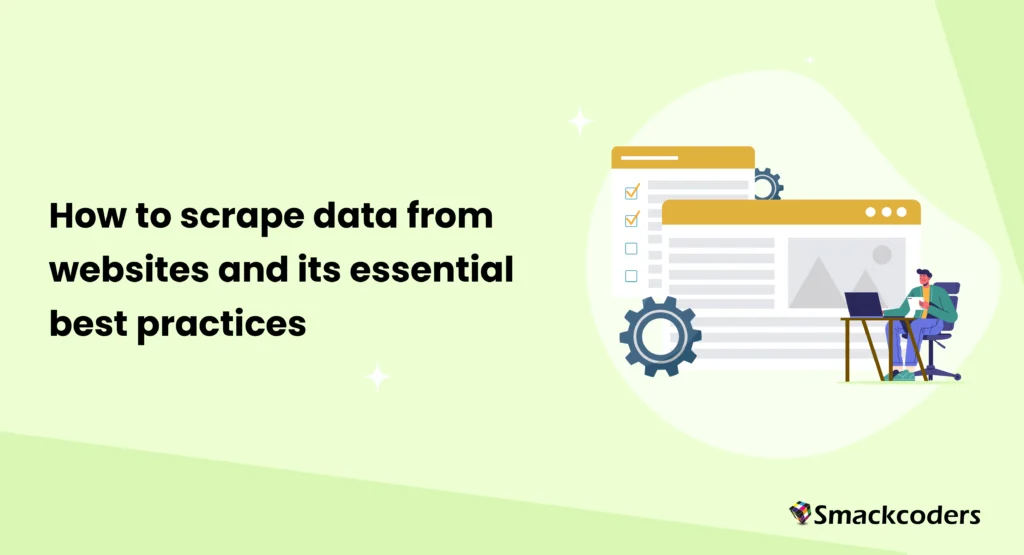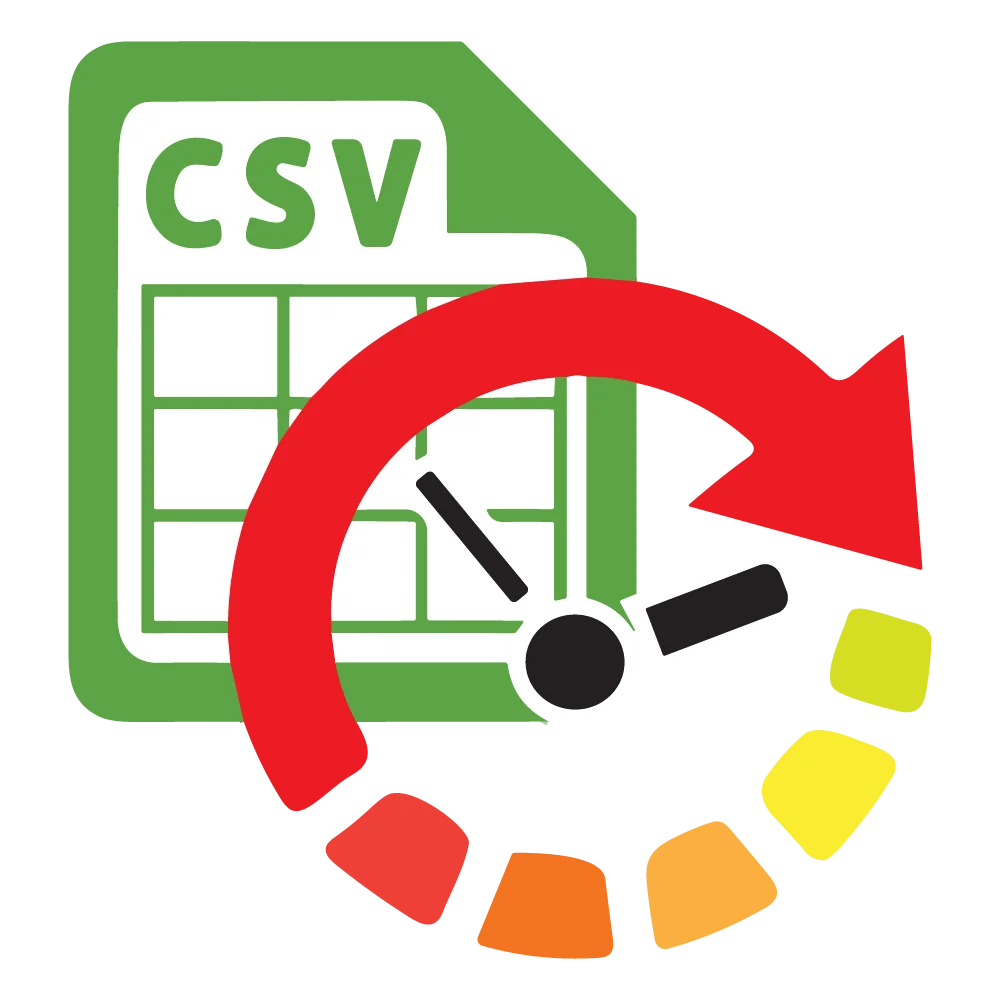
Table of Contents
Web scraping is the process of automatically extracting and gathering information/data from websites with the use of software programs or code. This technique may be noticeably beneficial for businesses, researchers, and people alike, permitting them to accumulate and analyze large amounts of data quickly and effectively. However, it’s vital to approach internet scraping responsibly and ethically, following all relevant laws and guidelines.
What is Web Scraping?
At its core, internet scraping entails using specialised software programs or scripts to simulate human web surfing and extract unique pieces of information from web sites. This can range from scraping pricing statistics from e-commerce sites to accumulating news articles or social media posts on particular subjects.
Potential Benefits of Web Scraping
- Data Collection at Scale: Web scraping permits you to gather sizeable quantities of records from more than one website simultaneously, a task that might be tremendously time-consuming and exertions-extensive to perform manually.
- Competitive Intelligence: By scraping records from competitors’ web sites, agencies can gain valuable insights into pricing techniques, product services, and market trends.
- Research and Analysis: Researchers and analysts can leverage net scraping to collect information for research, reviews, and data-driven decision-making.
- Lead Generation: Businesses can use internet scraping to extract touch information and build targeted lead lists for their sales, advertising, and marketing efforts.
Ethical and Legal Considerations
While web scraping may be an incredibly effective tool, it is critical to use it ethically and legally. Violating a website’s terms of service or scraping records without permission can probably cause prison results.
Some key issues include:
- Respecting robots.txt documents, which specify which elements of a website ought to not be crawled by bots.
- Implementing measures to avoid overwhelming an internet site’s servers with excessive requests (e.g., fee restricting).
- Obtaining express permission from internet site proprietors is vital.
- Complying with relevant statistics, privacy, and intellectual property laws.

WP Ultimate CSV Importer Pro
Get Ultimate CSV/XML Importer to import data on WordPress faster, quicker and safer.
Identify your target website and data.
The first step in internet scraping is figuring out the particular internet site or websites you need to extract data from and pinpointing the precise records you want. This will be something from product information and pricing records on an e-commerce web page to information articles or social media posts on a particular subject matter.
Take some time to very well explore the goal internet site(s) and understand the shape of the information you’re interested in. This will make the scraping technique an awful lot more efficient and effective.
Choose a Scraping Method
There are two principal approaches to internet scraping: guided and automatic. Each method has its personal pros and cons, and the first-class preference depends on your precise needs and technical expertise.
Manual Scraping
Manual scraping involves manually copying and pasting information from an internet site into a spreadsheet or record. This method is fairly easy and can be a good alternative in case you only want to extract a small quantity of statistics once in a while. However, it can be fairly time-consuming and inefficient for larger-scale fact-extraction initiatives.
Automated Scraping
Automated scraping includes the use of specialized software or coding libraries to programmatically extract statistics from websites. This technique is an awful lot more green and scalable, allowing you to scrape huge quantities of information quickly and constantly.
For novices, there are person-pleasant web scraping tools to be had that can help you extract information from websites with minimum coding required. These pieces of equipment frequently have intuitive interfaces and pre-built templates, making them an awesome starting point.
For extra superior customers, coding with libraries like Beautiful Soup (for Python) can offer greater flexibility and management over the scraping technique. This method does require some programming knowledge; however, it permits you to tailor the scraping system to your particular desires and deal with extra complex statistical systems.
Extracting the data
Once you’ve selected your scraping approach, the next step is to, in reality, extract the information from the website. This typically involves figuring out the specific HTML factors or structures that contain the data you want and writing code or configuring a tool to retrieve and parse that data.
When using automatic scraping techniques, it’s critical to implement measures to prevent overwhelming the target internet site’s servers with immoderate requests. This may also involve strategies like price restricting, which controls the frequency of requests to avoid overloading the web page.
Saving the Data
After effectively extracting the statistics, you will need to save them in an established format that can be easily analyzed and manipulated. Common record formats for web scraping consist of CSV (Comma-Separated Values) and JSON (JavaScript Object Notation).
Many internet scraping tools and libraries offer integrated capability for exporting statistics to these formats, making it easy to save and work along with your extracted records.
Throughout the net scraping process, it’s essential to prioritize moral record-scraping strategies and make sure you are extracting facts from websites legally. This can also contain respectable robots. Txt documents, obtaining explicit permission from website owners while essential, and complying with applicable records privacy and intellectual property laws.
Dos and Don’ts During Web Scraping
Some web sites need to save their data from being scraped. It’s critical to follow and admire every internet site’s tips while scraping facts. Here are some dos and don’ts for net scraping:
To Do:
Identify Yourself as a Scraper:
If the website has a robots.txt document, it’s a very good exercise to discover yourself and your scraping intentions. This allows website owners to screen and control how their records are being accessed.
Respect Website Terms of Service and Robots.txt Exclusions:
Before scraping any internet site, very well overview its terms of service and robots. Txt record. These documents outline what statistics and regions of the site are off-limits for scraping. Ignoring these pointers should cause legal problems or result in your IP being blocked.
Be Polite and Avoid Overwhelming the Website:
Implement fee-limiting measures to avoid bombarding the goal website with excessive requests that can overload its servers and disrupt ordinary operations. Be conscious of the internet site’s assets and scrape information at an inexpensive pace.
Scrape responsibly and Ethically:
Web scraping may be an effective device, but it is vital to apply it responsibly and ethically. Only scrape information that you have a legitimate desire for and respect highbrow assets, rights, facts, privacy, and legal guidelines.
Don’t:
Scrape data for illegal purposes:
Engaging in any illegal activities, which include scraping information for malicious purposes or violating copyright laws, is exactly off-limits and might have excessive criminal results.
Overload the website with excessive requests:
Avoid overwhelming the target internet site with an excessive quantity of requests, as this could cause server crashes, performance troubles, and criminal action.
Scrape data protected by way of logins or paywalls:
Respect authentication mechanisms and paywalls carried out by means of websites. Attempting to bypass these protections to get right of entry to confined information is unethical and possibly illegal.
Violate website Terms of Service or robots.txt Exclusions:
Ignoring a website’s terms and conditions or robotstxt file, which specifies areas that should not be crawled, is a contravention of the website’s regulations and may result in your IP being blocked or criminal action.

WP Ultimate CSV Importer Pro
Get Ultimate CSV/XML Importer to import data on WordPress faster, quicker and safer.
Best Practices Checklist for Web Scraping
Here’s a concise checklist to make sure you comply with high-quality practices and stay within the proper scope of the regulation:
Identification
- Clearly identify the website(s) you need to scrape facts from.
- Pinpoint the precise information points you need to extract.
Method Selection
- Determine whether or not manual or automatic scraping is more suitable, primarily based on the scope of your undertaking.
- For automatic scraping, pick out consumer-friendly gear (for beginners) or code with libraries like Beautiful Soup (for superior customers).
Responsible Scraping
- Thoroughly overview the goal of the internet site’s phrases of service and robots.txt file.
- Implement price-limiting measures to keep from overwhelming the website’s servers.
- Identify yourself as a scraper in the robots.txt record (if available).
- Only scrape records that you have a legitimate desire for and that appreciate intellectual property rights.
Data Saving
- Save the extracted information in a dependent format, like CSV or JSON, for easy evaluation and manipulation.
Additional Best Practices
- Respect any price limits imposed via the internet site to keep from being blocked or banned.
- Handle pagination while scraping multi-page datasets to make sure you capture all the relevant data.
Remember, accountable web scraping is essential for retaining the trust and integrity of the online environment.
Conclusion
Web scraping may be a powerful tool for extracting treasured information from web sites, but it is essential to approach it responsibly and legally. Before embarking on any web scraping, take some time to identify the unique internet site(s) and information points you need, and carefully review the internet site’s phrases of carrier and robots.txt record.
Choose the best scraping approach for your needs, whether it’s manual copying and pasting for small-scale projects or automated scraping with person-pleasant gear or coding libraries for large-scale data extraction. Implement price-restricting measures and handle pagination to avoid overwhelming the target internet site’s servers and to capture all of the relevant facts.
Throughout the method, prioritize moral practices, which include respecting intellectual property rights, records privacy laws, and authentication mechanisms. Save the extracted facts in established formats, like CSV or JSON, for smooth evaluation and manipulation.
By following first-class practices and adhering to moral tips, you could leverage the power of net scraping while maintaining the consideration and integrity of the online ecosystem. I encourage readers to explore web scraping responsibly for their tasks, respecting website proprietors’ guidelines and suggestions.
